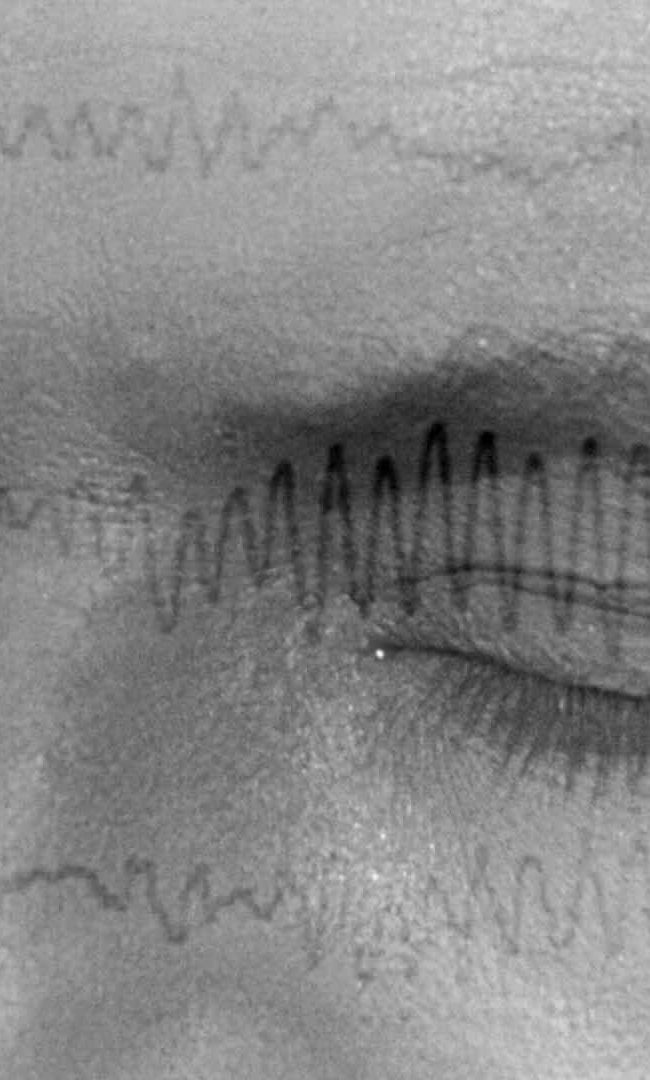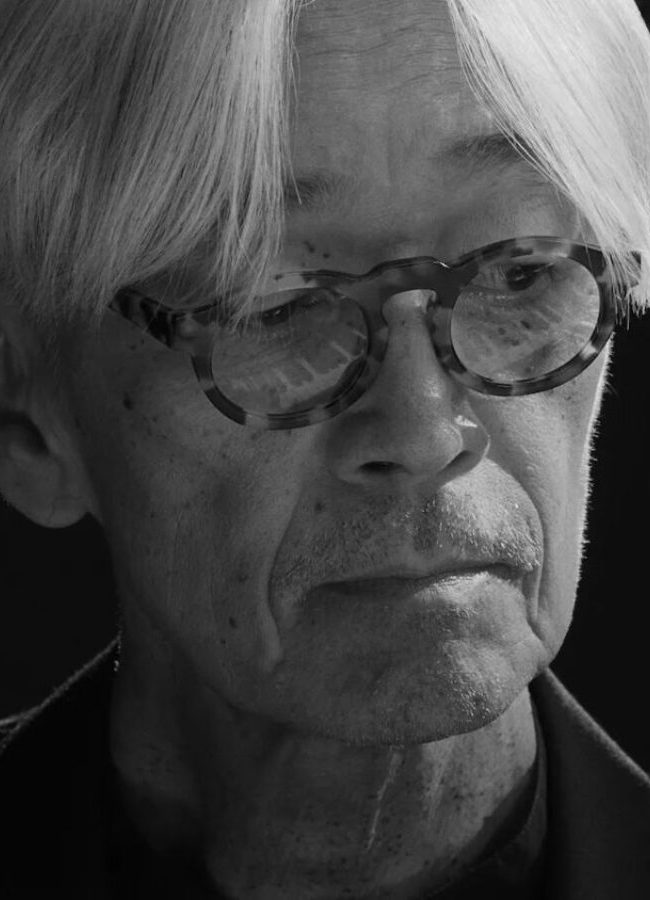THE CURBSIDE CRITERION: DEKALOG
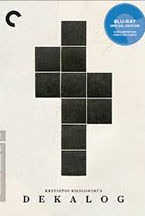
(We here at Hammer to Nail are all about true independent cinema. But we also have to tip our hat to the great films of yesteryear that continue to inspire filmmakers and cinephiles alike. This week, our “The Curbside Criterion” continues where HtN staff can trot out thoughts on the finest films ever made. Today HtN Lead Critic Chris Reed really did some due diligence watching every moment of Krzysztof Kieślowski’s essential 767 minute long Dekalog.)
1989 saw a wave of anti-Communist movements sweep across Eastern Europe, bringing revolution and change to countries that had long labored under repressive regimes. Poland, where the Solidarność (Solidarity) movement, founded in 1980 by Lech Wałęsa, had long been a thorn in the side of the government, led the way. Its Communist Prime Minister, General Czesław Kiszczak, stepped down in August of that year, appointing opposition politician Tadeusz Mazowiecki as his successor (which position would soon be formally endorsed by the Polish parliament), and ending 43 years of Communist rule.
Later that same year, Poland was the site of an event perhaps not so politically momentous, but of great occasion in the world of the moving image: the airing of director Krzysztof Kieślowski’s seminal Dekalog, a television series consisting of 10 sixty-minute (give or take) films, each loosely (emphasis on loose) based on one of the Ten Commandments. Kieślowski, then little known outside of his native land, had nevertheless been making movies for well over 20 years before taking on the project, which he co-wrote with lawyer-turned-scenarist Krzysztof Piesiewicz. Dekalog would soon be screened outside of Poland, along with the feature-length adaptations of two of the episodes – A Short Film About Killing and A Short Film About Love – first at festivals and then in theaters. Kieślowski suddenly found himself the subject of international acclaim, and with the Iron Curtain blown wide open, he was able to work abroad (which in his case meant France), throwing himself into co-productions like The Double Life of Veronique and the Three Colors series (on which he again collaborated with Piesiewicz). When he died in 1996 at the age of 54, from complications of a heart attack, there was a widespread sense of loss over future great films we would never see.
Fortunately, however, Dekalog still remains, as a testament to Kieślowski’s powers as a filmmaker, and is now out in a comprehensive Blu-ray package put together by Criterion, that wonderful purveyor of fine quality movies and special features about those movies. And comprehensive is the word, indeed! Not only are all 767 minutes of the 10 episodes + 2 feature films included (the box lists the length at 754 minutes, so Criterion must not count the credits), but so are 184 minutes of supplements, all on their very own disc (4 discs total, 2 with 5 episodes each and 1 with the 2 feature films). I think my favorite of these add-ons (though they’re all interesting) is the interview with Annette Insdorf, of Columbia University, whose insights into the meaning of Kieślowski’s work are an invaluable aid for novice and aficionado, alike. In addition, Criterion adds an accompanying 70+ pages of written materials in a booklet far thicker than the usual liner notes, with essays by film scholar Paul Coates and Kieślowski, himself. I will not lie: it’s a massive undertaking to watch and read everything here, yet the intellectual and emotional rewards are great, starting with the simultaneous simplicity and complexity of the original work.
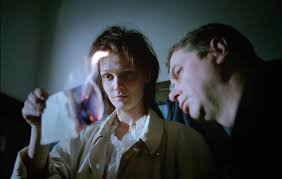
Mostly set in and around one particular Warsaw apartment complex, each episode focuses on a different group of protagonists, whose paths, from story to story, occasionally overlap, but whose trajectories are uniquely their own. There is one face that reappears in all but two of the films, however: some viewers have called him the watcher, or the young man; others an angel or a devil. Always a different character, though played by the same actor, Artur Barciś, he observes, but never acts. You decide his purpose and meaning. Kieślowski included him after a producer insisted that the series was missing some kind of connecting element.
The drab ordinariness of the apartment block’s environment belies the profundity of the narrative, for both the stories’ characters and viewers. Using the Roman Catholic enumeration of the Ten Commandments – beginning with “Thou shalt have no other gods before Me” and ending with ” Thou shalt not covet thy neighbor’s goods” – Kieślowski and Piesiewicz take us on a journey through the human condition where actions always have consequences and no one is free from judgment, even if that judgment is that of one’s own conscience. Criticized at the time from some inside Poland for omitting many details of life under the Communist regime, such as food lines and ration cards, Kieślowski today seems especially farsighted, since it is that very decision that helps to make Dekalog as relevant now as it was then. This doesn’t mean that the series exists outside of time and place – we are very much in Poland in the late 1980s – but rather that the political situation, which could have overwhelmed the stories and, in any case, was soon relegated to the dustbin of history, is jettisoned in favor of the personal experience.
Not all episodes are created equal; my favorites, by far, were #1 (“Thou shalt have no other gods before Me”), #2 (“Thou shalt not take the name of the Lord thy God in vain”), #6 (“Thou shalt not commit adultery”) and #9 (“Thou shalt not covet thy neighbor’s wife”). I also markedly prefer the shorter versions of #5 (“Thou shalt not kill”) and #6 to their feature-length adaptions, feeling that less is more, storywise. Still, it is the cumulative effect of all of it put together that makes Dekalog an overwhelmingly profound viewing experience, no matter one’s reaction to an individual episode. Starring the great Polish actors of the day, both young and old, and shot by nine different cinematographers, both up-and-comers and veterans, the series showcases an enormous array of talent, the whole of it masterfully directed by a cinematic genius at the peak of his creative powers.
Criterion presents Dekalog in a new restoration scanned in 4K resolution from the original 35mm negatives, with remastered versions of the original monaural soundtracks. Unfortunately, while the bulk of the images are beautiful to behold, there must have been some degradation of the negative, because grain, pixelation (especially in low-light scenes) and flashes sometimes occur throughout. Most of what you see, however, is flawless (making those occasional glitches even more distracting, I will admit). The subtitles are easy to read. 8 of the 10 episodes appear as they did on television, in a 4:3 aspect ratio, while episodes #5 and #6 are presented in 16:9, both in their short forms and feature versions. Even without the fourth disc, filled with supplements, this would be a collection worth buying (visual flaws notwithstanding). However, the extras most definitely add to the value, and what follows is my review of these ancillary materials.
SPECIAL FEATURES – BOOKLET (5 items)
There are five sections to the booklet, two written by film scholar Paul Coates (Professor Emeritus of Film Studies at Western University, Ontario, and author of Lucid Dreams: The Cinema of Krzysztof Kieślowski) and three by Kieślowski. The first part is an essay entitled “And So On: Kieślowski’s Dekalog and the Metaphysics of the Everyday,” and it is a solid mix of analysis and production history, well worth the read. Next, we have synopses of the 10 episodes (with passing mention of the two features), also by Coates, which are pretty concise and straightforward. The final three parts are all excerpts from the essay collection Kieślowski on Kieślowski, in which the director first explains how the series came about, and then breaks down the making of the two feature adaptations. It turns out that the features were conceived as a way to receive more funding for the overall series, since a theatrical release would guarantee greater financial returns. There’s a lot of wonderful information here, printed on nice paper stock, for a terrific reading experience.
SPECIAL FEATURES – DISC 4 (11 items)
“On the Set of Dekalog” (brief Interview with Krzysztof Kieślowski, from 87/88, on Set of Dekalog #2) (3:37min)
This is short, but since it’s the only footage in the package from one of the actual sets, it’s also sweet. First up is a voiceover intro – listening to which I learned that the Polish pronunciation of “Dekalog” places the stress on the second, rather than first, syllable (at least in the nominative case) – followed by a brief interview with the director.
A Short Film About Decalogue: An Interview with Krzysztof Kieślowski (excerpt from documentary by Eileen Anipare, and Jason Wood) (20:28min)
British film students Eileen Anipare and Jason Wood produced a 47-minute documentary about Kieślowski in 1995, and Criterion has excerpted almost half of that film here. Very poorly shot (the filmmakers seem unaware of the concept of video color correction), and framed from the side, so that we never see Kieślowski except in profile, the piece nevertheless includes some great exchanges between the man and his interviewer. Things we learn include: the fact that Dekalog cost $100,000 to make and made back at least $3 million, for a 30:1 return-on-investment ratio; and that Kieślowski compares himself, for his time and place, to English director Ken Loach. If you can look past the horrible orange tint of the visuals, there is good stuff here.
Kieślowski at the National Film Theatre in London, in 1990: 23-minute audience clip of on-stage interview with film critic Derek Malcolm (23:10min)
This is an audio-only exchange between interviewer Derek Malcolm and Kieślowski. We learn quite a lot about the director’s background prior to making Dekalog, including his beginnings as a documentarian – much of which is also in Coates’ essay (see above) – as well as information about the series’ reception at home and abroad. Definitely worth the listen.
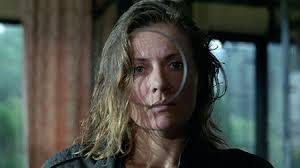
Annette Insdorf: “Krzysztof Kieślowski’s Masterful Poetry” (2016 interview) (28min)
This is the standout, for me, among the extras. Insdorf is a brilliant academic, and her insights into both Kieślowski and Dekalog make a for an extremely valuable companion piece to the series. She discusses both the meaning of the cinematic texts and their production history, offering fascinating material no matter one’s personal area of interest. I enjoyed her thoughts on the Artur Barciś characters (the aforementioned “watcher,” or “young man”) and their place in the narratives: she compares them to the angels in Wim Wenders’ Wings of Desire. She also has a lot to say about the different ways that the story of Dekalog #6 is arranged for television vs. its feature adaptation, and how the two versions place different emphases on free will vs. fate. There’s much more, too: the 28 minutes are densely packed with nuggets of great wisdom.
Interview with Krzysztof Piesiewicz (2003 interview) (25:14min)
Piesiewicz – Kieślowski’s screenwriting partner – has a lot to say about their personal history and long collaboration, as well as about the production history of the series. A strong addition to the collection.
Interview with 13 Actors (2003 interview) (21:09min)
The following actors make an appearance here, in this order:
- Grażyna Szapołowska (Dekalog 6)
- Zbigniew Zamachowski (Dekalog 10)
- Krystyna Janda (Dekalog 2)
- Olaf Lubaszenko (Dekalog 6)
- Anna Polony (Dekalog 7)
- Maja Komorowska (Dekalog 1)
- Adrianna Biedrzyńska (Dekalog 4)
- Ewa Błaszczyk (Dekalog 9)
- Artur Barciś (young man)
- Maria Pakulnis (Dekalog 3)
- Teresa Marczewska (Dekalog 8)
- Mirosław Baka (Dekalog 5)
- Jerzy Stuhr (Dekalog 10)
They’re shot in interesting places, some of which echo the locations of each actor’s story in the series, but none of them offer particularly insightful comments on the series. Most of them, however, are quite warm in their reflections on Kieślowski.
Interview with Editor Ewa Smal (2016 interview) (15:21min)
Smal, like Piesiewicz, has a lot of wonderful production (or, to be more accurate, post-production) history to share, particularly in regards to Kieślowski’s working methods and shooting ratio (4:1). Another strong addition.
Interview with DP (Director of Photography) Wiesław Zdort, of Dekalog 1 (2016 interview) (15:41min)
Zdort offers the most comprehensive history of the overall production process of the three cinematographers interviewed here. According to him, he idolized Kieślowski, who called him up in 1988, offering the chance to work on the series. Zdort confirms what you will have already learned by now if you have read and watched all of the other materials in the collection, which is that Kieślowski allowed complete freedom to the cinematographers to shoot as they wanted (and yet most of the episodes share a similar aesthetic). Zdort continuously rhapsodizes about the work of DP Sławomir Idziak, who shot Dekalog #5, though I actually prefer Zdort’s less mannered approach to Idziak’s (to my mind) excessive use of filters. Yet another good extra.
Interview with DP Sławomir Idziak, of Dekalog 5 (2003 interview) (2:56min)
I wish this interview were longer, but there’s still a fascinating revelation here, which is that Idziak, for reasons not disclosed, wanted out of the job, which is why he proposed such a radical look to the episode (he used hundreds of colored filters to texture and stylize every shot), hoping to be turned down (obviously, he wasn’t). “The Politics of Dirt,” he calls it. I’m not a huge fan of the look, though I admire the ambition of it. Another short, but sweet, special feature.
Interview with DP Witold Adamek, of Dekalog 6 (2016 interview) (12:25min)
Adamek comes across as the intellectual of the three cinematographers, commenting how the free will that Kieślowski offered to his collaborators was but an illusion. According to Adamek, the director would only accept the ideas that already fit in with the concept he had in his head. That said, he nevertheless loved working with Kieślowski. Adamek also confirms what we hope would be an obvious truth, which is that, yes, they were all thinking of Hitchcock’s Rear Window as they made this particular episode, which features a voyeur looking into a neighbor’s apartment though a telephoto lens. This is even better than the other cinematographer interviews.
“We Are the Sad Ones” – Interview with Journalist Hanna Krall, Creative Confidante of Kieślowski (2016 interview) (15:55min)
Finally, the fourth disc ends with this interview with Krall, who has a lot to say about why Kieślowski transitioned from documentaries to narratives. She’s the one who introduced Kieślowski to Piesiewicz, and also the one who came up with the initial idea for Dekalog #8 (at least according to her). She talks about the role of “subjective guilt” (guilt that one feels for being witness to atrocities, even if one did not participate in them), which is a central theme of that episode. Also a good addition to the extras.
Again, then, this is an extremely comprehensive collection and a must-own for fans of Kieślowski and Dekalog. Given how much material is jam-packed into these four discs, it’s a steal at any price.
– Christopher Llewellyn Reed (@ChrisReedFilm)








